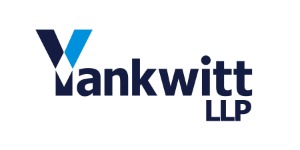

Russell M. Yankwitt
Awarded Practice Areas
Biography
Russell is an aggressive strategist who leverages decades of trial experience to win big for his clients. He takes a deep personal interest in his clients and zealously advocates for them to obtain the most favorable dispute resolution for each set of circumstances.
Russell Yankwitt is one of Westchester County’s most highly respected attorneys, known for his impressive track record of case wins in the courthouse, in private arbitration and at the settlement table. Unlike many litigators, Russell is not afraid to take cases to trial, which he leverages at mediations and during settlement negotiations to secure the best outcomes for his clients. His thorough preparation and ability to assess his adversaries’ tipping points are key factors in his exceptional success at settling cases favorably.
One of Russell’s standout qualities is his unwavering commitment to his clients. He deeply cares for them personally and advocates for them with unyielding determination and dedication. In addition, he always gives 100 percent, standing resolute and Yankwitt Tough until the case is fully resolved. For all these reasons, clients regularly turn to Russell for sophisticated yet sympathetic legal counsel. Russell is an active member of the Westchester County community, serving on multiple not-for-profit boards and the Executive Board of the Westchester County Board Association. He also serves on the Executive Board of the Federal Bar Council. His leadership roles in the state and federal bar associations and his reputation for integrity and trustworthiness have earned him the respect of his peers and the judiciary, as well as regular recognition and inclusion in Super Lawyers, Best Lawyers, Chambers and Partners, and Benchmark organizations. Prior to founding Yankwitt LLP in 2009, Russell worked at the prestigious New York City law firm Skadden, Arps, Slate, Meagher and Flom LLP and served as an Assistant United States Attorney in the Southern District of New York and a federal law clerk in the Eastern District of New York, where he fostered relationships with the bar and bench that he draws on to this day.Overview
- Cornell University, J.D cum laude, graduated 1996
- Connecticut College, B.A. Phi Beta Kappa
- New York, 2855187
- New Jersey, 238812017
- Connecticut, 433775
- Pennsylvania, 310920
- AMANDA ADR - Mediator
- Inns of Court - Member
- UJA Federation, Westchester Business & Professional Division, - Board Member
- Federal Bar Council, Westchester Committee - Founder & Chair
- Federal Bar Council Board of Directors - Vice President
- The Business Council of Westchester - Board Member
- Legal Services of the Hudson Valley - Board Member
- Westchester County Bar Foundation - Board Member
- Westchester County Bar Association - Co-Chair of the ADR Committee
- Supreme Court of the United States of America
- US District Court, Southern District of New York
- US District Court, Eastern District of New York
- US District Court, Northern District of New York
- US District Court, District of Connecticut
- US District Court, District of New Jersey
- US District Court, Eastern District of Pennsylvania
- US Court of Appeals, Second Circuit
- United States District Court
- New York, 2855187
- New Jersey, 238812017
- Connecticut, 433775
- Pennsylvania, 310920
- AMANDA ADR - Mediator
- Inns of Court - Member
- UJA Federation, Westchester Business & Professional Division, - Board Member
- Federal Bar Council, Westchester Committee - Founder & Chair
- Federal Bar Council Board of Directors - Vice President
- The Business Council of Westchester - Board Member
- Legal Services of the Hudson Valley - Board Member
- Westchester County Bar Foundation - Board Member
- Westchester County Bar Association - Co-Chair of the ADR Committee
- Cornell University, J.D cum laude, graduated 1996
- Connecticut College, B.A. Phi Beta Kappa
- Supreme Court of the United States of America
- US District Court, Southern District of New York
- US District Court, Eastern District of New York
- US District Court, Northern District of New York
- US District Court, District of Connecticut
- US District Court, District of New Jersey
- US District Court, Eastern District of Pennsylvania
- US Court of Appeals, Second Circuit
- United States District Court
Client Testimonials
Awards & Focus
- Commercial Litigation
- Litigation - Insurance
- Litigation - Labor and Employment
- Arbitration
- Litigation - Banking and Finance
- Litigation - Health Care
- Litigation - Real Estate
- Mediation
- Personal Injury Litigation - Defendants
- Professional Malpractice Law - Defendants
- Workers' Compensation Law - Employers
- Chambers USA
- Benchmark Litigation, Litigation Stars
- Gold Client Champion by Martindale-Hubbell
- The National Law Journal Elite Boutique Trailblazers
- Westfair Communications C-Suite Award
- Selected for inclusion in Top 25 Westchester Super Lawyers, 2013-2015, 2017-2022
- Selected for inclusion in Top 100 New York Metro Super Lawyers, 2011-2022
- AV® Preeminent Rated by Martindale-Hubbell
- United States Attorney General’s Award for Tax Prosecutions
- Environmental Protection Agency Award for Commendable Service
- NOAA Bronze Medal Award for "displaying leadership, teamwork and innovation to successfully settle" a complex environmental bankruptcy for $125 million
News & Media


Insights
Additional Information
- Government Service
Your browser is not fully compatible with our automatic printer friendly formatting.
Please use the print button to print this profile page.


